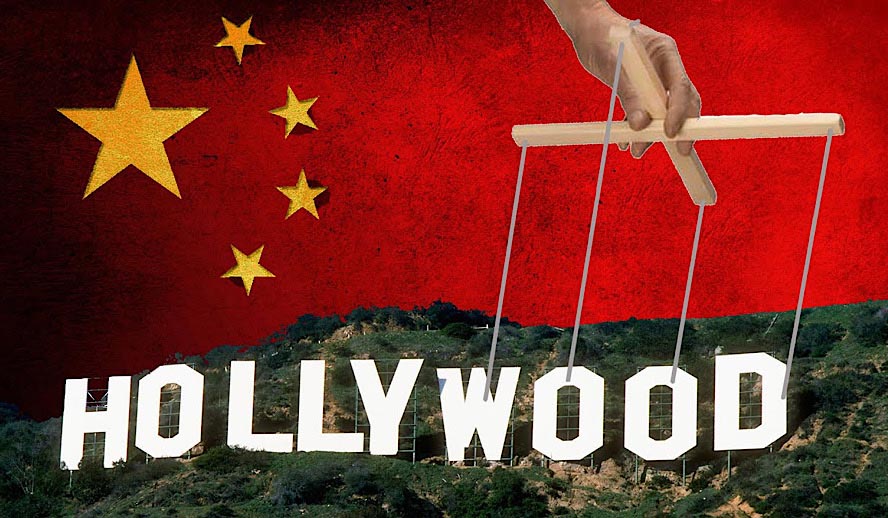That China’s comprehensive national power poses the primary threat to America’s primacy in the international system is evident. If the world is witnessing the beginning of a new Cold War between the United States and China, as many suggest, should not more menacing Chinese villains populate mainstream Hollywood movies? During the older Cold War between the United States and the Soviet Union, Russian villains dominated Hollywood major blockbusters. Internal and external threats as perceived in America have often entered Hollywood movies, from Blacks to Germans and Japanese, Russians to Islamic Terrorists and occasionally, North Koreans.
If such is the trend, current geopolitics should have provided readymade materials for patriotic Americans protecting the “liberal international order” from the onslaught of the “illiberal” Chinese agenda to shape the international system in its own “autocratic” image. If geopolitics dictated matters, Hollywood should have lined up movies after movies, of Chinese spies penetrating the American system, or of American forces fighting Chinese forces in the Taiwan Strait, and the South China Sea. However, Chinese villains are, astoundingly, almost impossible to notice in mainstream Hollywood movies. Instead, Hollywood’s biggest superstar Tom Cruise comes up with a visually enriching yet geopolitically diffident production Top Gun: Maverick (2022), not even mentioning the enemy with 5th generation fighter planes, by name. As the trailers of this hugely successful venture started hitting the internet, fans of the older Top Gun, could not help noticing the absence of the Taiwanese and Japanese flags from Pete “Maverick” Mitchell’s iconic leather bomber jacket.
Chinese financiers are reaching deep into Hollywood, helping shape and reshape the narrative around the depiction of China in Hollywood, and by corollary, how the world sees China’s rise. China’s economic rise has ignited a sense of awe and admiration around the world, but its assertive military rise has also simultaneously raised concerns among many countries. Therefore, China’s public diplomacy and propaganda have left no stones unturned, to paint a softer and more benevolent image of China’s rise and its professed goals for a harmonious international society. From the 2008 Olympic Games to its Panda Diplomacy and Confucius Institutes across the world, Beijing has gone out of its way to influence the foreign audiences. In recent times, Chinese movies from the mainland, such as Wolf Warriors 2 (2017) and the Wandering Earth (2019) have successfully catered to the growing appetite for Chinese nationalism.
By many accounts, China has already surpassed North America as the biggest box office in the world, making it inevitable for American studios but to kowtow to Chinese censorship in order to enter the Chinese market, and in the process ending up self-censoring as well. Here, moneymaking matters more than the reality of geopolitics. Increasingly, major Hollywood studios see access to the mammoth Chinese market as tickets to box office success. Moreover, with new age Chinese productions giving tougher competition to Hollywood franchises, American production companies need even better pathways to a country, which is also notorious for putting a quota on number of foreign films allowed to enter the Chinese box office.
Major Hollywood productions, in exchange for entry into the lucrative Chinese market, have been accused of censoring depictions that might rub Chinese authorities the wrong way. For instance, in the first cinematic instalment of Dr. Strange (2016), the ‘Ancient One’ was changed from a Tibetan to an androgynous Celtic character played by Tilda Swinton. The 2012 science-fiction movie Looper, came under spotlight, for making past Chinese censorship after depicting a glorified look of Shanghai as a futuristic city. American superstars like Brad Pitt and Richard Gere, have faced the wrath of the Chinese government, for either starring in movies like Seven Years in Tibet, or being vocal about Tibetan rights. On the other hand, American actor and wrestling professional John Cena had to apologize on Chinese social media, for having called Taiwan a country in one of his interviews, before the release of Fast and Furious 9 (2021). Recently, the American cult classic Fight Club, starring Edward Norton, Brad Pitt and Helena Boham Carter, known for its anarchist and anti-establishment portrayal, came under Chinese censorship. However, Tencent video, the Chinese streaming platform, had to eventually restore the original ending, after it had edited it for Chinese audiences, to portray an alternate ending where the authorities thwarted any anti-government plan and won the day.
With Chinese Communist Party’s grip on censorship, the growing size of movie screens in mainland China, along with stiff competition from Chinese nationalist films with higher production values, Beijing’s influence on story telling in Hollywood might be of concern. In the hands of Chinese authorities, it is fast emerging as a propaganda tool unmatched in contemporary times, orchestrated to influence the most prominent tool of American propaganda, Hollywood. Although the Chinese Communist Party may not be very welcoming of American culture entering China through Hollywood, the lucrative entry of American entertainment industry from an economic sense, might be too desirable to deny. So, is Chinese censorship a means to whitewash any negative portrayal of China in American movies, or to amend any political and social depiction that might be counter to the beliefs and ideals of the Communist Party of China? It is bit geopolitics, measurably economics and part nationalism and hence a complex plot. To paraphrase one of Godfather’s iconic lines-‘Has China made an offer that Hollywood can’t refuse?’

The writer teaches at the Amity Institute of International Studies (AIIS), Amity University, Noida. He is also the Honorary Director of the Kalinga Institute of Indo-Pacific Studies (KIIPS).











